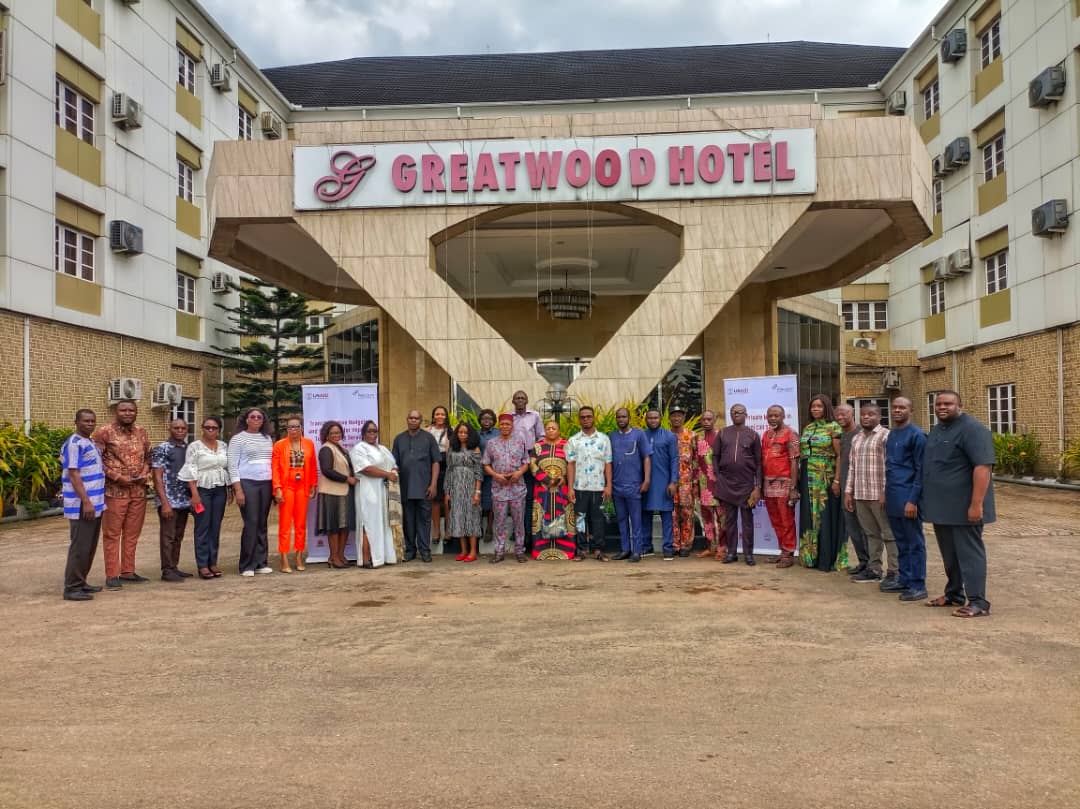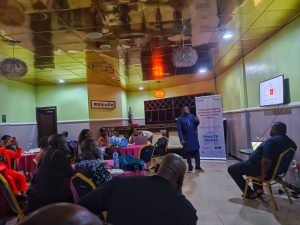Fund TB Cluster Trains Stakeholders for Improved TB Funding in Five Southern States

By Ekemini Simon
The Fund TB Cluster a group of organisations working on improved funding for projects and programmes that will address the menace of Tuberculosis (TB) has trained stakeholders across the five States of Akwa Ibom, Cross River, Anambra, Imo, and Delta States on how to enhance funding for Tuberculosis.
The Fund TB Cluster through a technical Budget Session and Memo Writing Workshop held in Owerri, Imo State last week witnessed five stakeholders including three State actors, one Civil Society Organisations and one media practitioner trained from each of the five States on the budget environment for TB financing and effective memo writing skills in a way that will engineer releases.
In his presentation on ” Current Policy and Budgetary Environment for TB and Policy Alternatives”, one of the Facilitators, Ekemini Simon noted that according to the National Strategic Plan for Tuberculosis Control, $ 1.9 billion dollars was the budget required to implement the strategy for TB control in Nigeria. He noted that despite the budget, the funding for TB has been grossly poor with 70 percent funding gap and 30 percent funding which within the 30 percent only 6 percent is from the government and 24 percent from donor agencies.
He said even at the State level, in the last three years, only Anambra State released funds (N21m out of N50m) among the five focal States for TB control. Simon said despite Akwa Ibom State recording 6,228 diagnosed persons infected by TB, the oil rich State does not have a budget line for TB. The Facilitator who also highlighted frivolous spending within the three years period pointed out that the challenge is not lack of funds but priority of government.
He explained that the stakeholders have the responsibility of convincing the government to prioritize TB funding hence help fight TB.

Also in her presentation on “Crafting a Compelling and Effective Memo to facilitate Budgeted TB Fund Release, Nnennaya Eneremadu said stakeholders can utilize memo writing to get budgeted funds for TB released.
She said key elements to a compelling memo include a clear purpose which is to inform, request, or provide updates, with straightforward, precise words.
Eneremadu said there is need for concise content explaining that when the memo is brief and to the point with relevant information in a structured format with headings, bullet points, and short paragraphs, it is likely to gain success.
She added “Audience Awareness: understand the audience and write in a tone and style that resonates with them and include information that is directly relevant and taken seriously by the recipients.
“Strong Opening: with a strong, engaging statement that captures attention and provides necessary background for context. Actionable Recommendations: specify what needs to be done, by whom, and by when to prevent confusion and ensure follow-through Professional Tone: maintain a professional tone, respectful and neutral Supporting Data: as evidence with statistics, or examples to add”.
The Facilitator said there is a need for credibility and also to persuade the reader, using charts or graphs if they help clarify complex information.
She added that it must be timely delivered through the use of the right channels to distribute the memo in time, as late memos can be ineffective coupled with follow-up which will include an address for response or feedback.
In their respective remarks, Ojiaka Obinna, Director Budget, Imo State Ministry of Budget, Economic Planning and Statistics and George Ekanem, Deputy Director Planning Research and Statistics in Akwa Ibom State thanked Fund TB Cluster for the training. They assured that going back to their various offices, they will utilize the knowledge gained to ensure TB receives improved funding especially from the State Government.
The Fund TB Cluster comprises of Policy Alert, Gender Perspective and Social Development Center (GPSDC), Center for Healthworks, Development and Research Initiative (CHEDRES), Concern for Women and Youth Empowerment (COWOYEM), and Initiative for the Prevention and Control of Diseases (IPCD). The project is supported by the United States Agency for International Development (USAID), through the Palladium Group.







